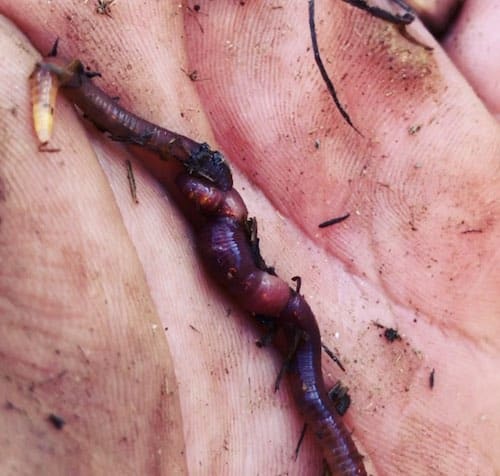Red Wiggler Worms - Perfect for Vermicomposting and Soil Enrichment
Red Wiggler Worms - Perfect for Vermicomposting and Soil Enrichment
Blog Article
Red Wiggler Worms Demystified: Opening the Tricks of Vermiculture for Greener Living and Nutrient-Rich Soil
In the realm of sustainable practices for enriching soil quality and advertising eco-conscious living, red wiggler worms play a pivotal yet often overlooked duty. These modest animals possess the amazing ability to change organic waste into nutrient-rich castings that act as a powerful all-natural plant food. By diving right into the globe of vermiculture, one can reveal a wide variety of benefits that extend far beyond typical composting approaches. Comprehending the ins and outs of taking care of these worms, enhancing their atmosphere, and harnessing their spreadings can lead to a greener way of living and much healthier soil for plants to flourish.
The Function of Red Wiggler Worms
Red Wiggler worms play an essential function in composting systems by efficiently breaking down organic issue right into nutrient-rich spreadings. These starved eaters eat a range of organic products, such as kitchen scraps, lawn waste, and paper items. As they feed, the worms' digestive system processes damage down the natural matter into a penalty, dark, and nutrient-dense material understood as worm castings or vermicompost.
The castings generated by Red Wiggler worms are very beneficial for dirt health and wellness and plant development. They are abundant in necessary nutrients like nitrogen, phosphorus, and potassium, which are vital for sustaining healthy and balanced plant advancement. In addition, worm castings include helpful germs and enzymes that aid improve soil structure, increase water retention, and enhance nutrient uptake by plants.
Benefits of Vermicomposting

Furthermore, vermicompost, the nutrient-rich final result of vermicomposting, works as an exceptional organic plant food and soil conditioner. It enhances dirt structure, boosts soil oygenation, and enhances dirt moisture retention. These homes contribute to healthier plants with more powerful root systems and far better resistance to illness and pests. Vermicompost likewise enriches the dirt with vital nutrients like potassium, nitrogen, and phosphorus, promoting plant development and overall dirt fertility.
Furthermore, vermicomposting assistances lasting gardening methods by giving a natural and chemical-free option to artificial plant foods. Red Wiggler Worms. This ecologically pleasant approach not only enhances the dirt but likewise aids decrease dependence on damaging chemicals, advertising a greener and much more lasting way of gardening
Establishing a Worm Container
When developing a worm container for vermicomposting, appropriate configuration is vital to make sure the success of the composting procedure. The first action in setting up a worm bin is picking an ideal container.
After including the bedding, present the red wiggler worms to the container. It is recommended to begin with a handful of worms and slowly enhance as they increase. The worms must then be provided with food scraps such as vegetables and fruit peels, coffee grounds, and eggshells. It is necessary to prevent including meat, milk, oily, or salty foods to stop bring in insects and creating undesirable odors.
Regularly check the wetness degrees and temperature in the worm container to guarantee optimum conditions for the worms. With correct configuration and maintenance, the worm container will efficiently transform natural waste into nutrient-rich site here garden compost for your plants and garden.
Collecting Worm Castings
To efficiently accumulate nutrient-rich worm castings from your vermicomposting system, a systematic harvesting technique is important. There are a couple of essential actions to follow to make sure an effective process when it comes time to collect the worm castings. First of all, quit adding fresh food scraps away of the worm container for a number of weeks prior to harvesting. This encourages the worms to migrate sideways with fresh bed linens and food, making it easier to scoop out the spreadings from the opposite side.

Troubleshooting Common Issues
Determining and addressing usual difficulties that may emerge during the vermicomposting process is critical for keeping a effective and healthy worm container. Including excess food scraps can lead to an accumulation of dampness and acidity in the worm container, potentially damaging the worms. Another concern is unpleasant smells originating from the worm bin.
Furthermore, if the worm population is declining or the worms appear harmful, it can be because of ecological stress factors such as extreme temperatures or pH degrees. Checking these aspects and making required adjustments is vital for the wellness of the worms. By troubleshooting these common concerns without delay, vermicomposters can ensure a successful and smooth vermicomposting process while preserving a prospering worm population.

Final Thought
To conclude, red wiggler worms play a crucial role in vermiculture by damaging down natural issue into nutrient-rich soil. The benefits of vermiculture include greener living and boosted dirt top quality. Establishing a worm bin is necessary for successful vermiculture, and gathering worm castings provides beneficial garden compost for horticulture. By comprehending and troubleshooting common issues, people can open the tricks of vermiculture for sustainable living and much healthier dirt.
As they feed, the worms' gastrointestinal procedures damage down the organic matter right into a fine, dark, and nutrient-dense product known as worm spreadings or vermicompost.
The spreadings see this produced by Red Wiggler worms are very useful for dirt health and wellness and plant development. Adding excess food scraps can lead to a buildup of moisture and level of acidity in the worm container, possibly hurting the worms.Additionally, if the worm population is declining or the worms appear unhealthy, visit the website it can be due to ecological stressors such as severe temperature levels or pH levels. Setting up a worm container is vital for successful vermiculture, and harvesting worm spreadings provides useful compost for horticulture.
Report this page